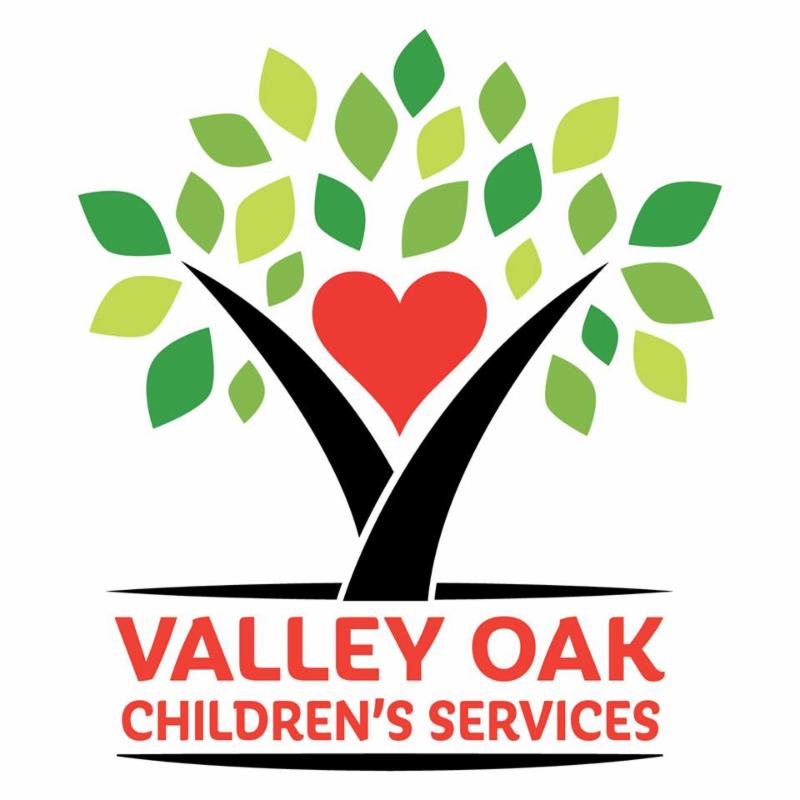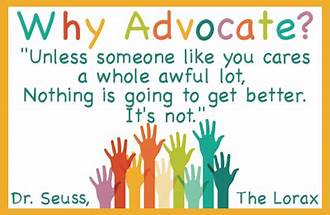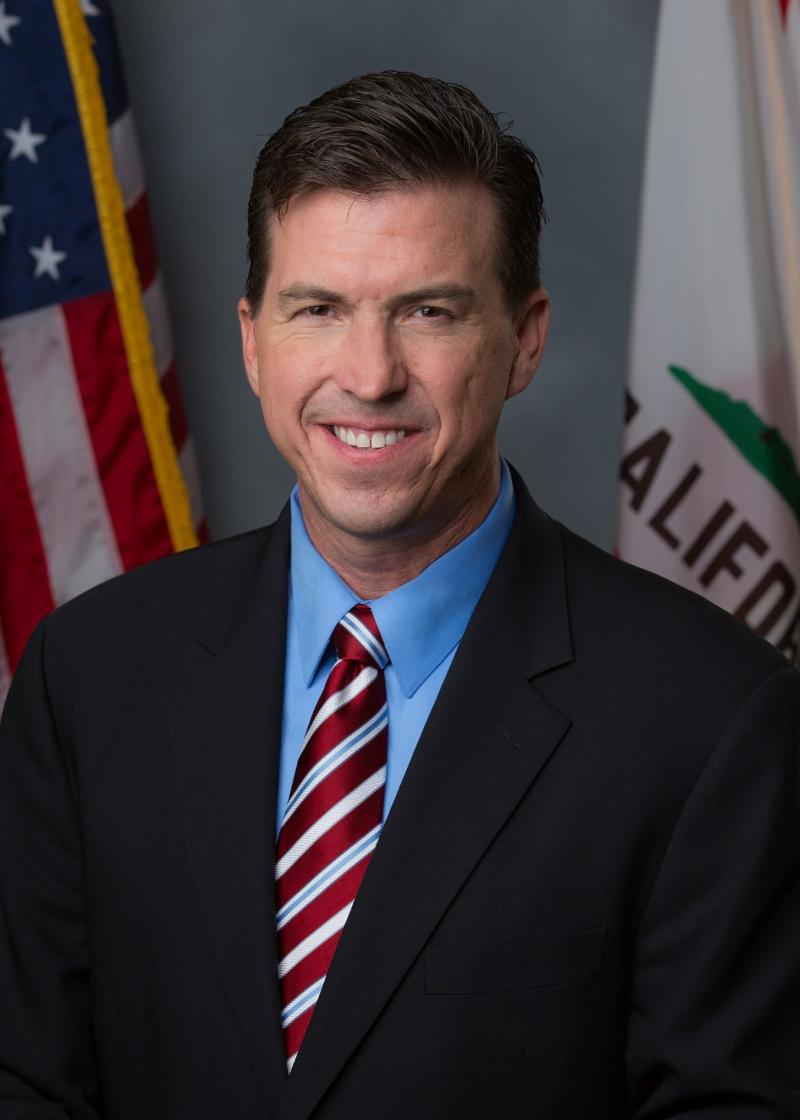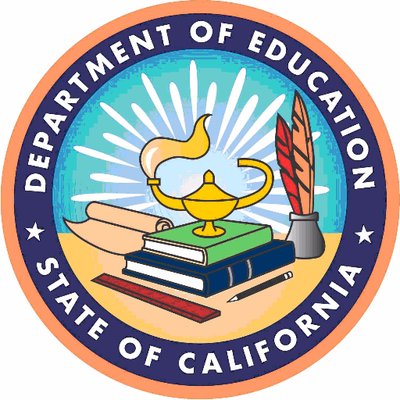 |
|
|
April 2019 Featured Agency
|
|
Glenn County Office of Education- Child Care Resource Referral and Payment Program
has been serving families in Glenn County since 1998. Located in the rural Sacramento Valley, Glenn County is home to approximately 30,000 people. With over 1,188 farms, agriculture is the primary source of Glenn County's economy; commodities include rice, almonds, milk products, prunes, and livestock. Understanding our community is key to successfully meeting the needs of families as they utilize largely varied and non-traditional employment and education schedules.
**Thank you to Joie Owen, Family Services Division Manager, for the submission!**
|

In the past three months since the Camp Fire, VALLEY OAK CHILDREN'S SERVICES has had some successes in the world of child care.
We would like to share KUDOS with our local Regional Licensing office, City and County Planning offices and Fire Marshalls, and the Department of Education. While VALLEY OAK CHILREN'S SERVICES has been working hard to assist families find childcare that meets their needs being affordable, quality, reliable, and welcoming these mentioned agencies have moved mountains to approve fire clearances, use permits, licenses and waivers for Family Child Care Homes and Centers.
Butte County is seeing child care growth with 4 re-opened FCC's, 6 new licensed FCC's, and 1 new Center. We are offering 10 plus hours of provider training monthly ranging from Getting Started in the Business of Child Care, Child Development, Learning Environments, Professional Development, and Trauma Informed Care.
Other areas of success are in the lives of families that we serve with Behavioral Health, Bridge Program and Early Head Start.
Here is an example of a success we had in our Bridge Program:
Back in December, we were able to enroll a family into Bridge. The mother, S., came in and completed enrollment for the child and was able to get child care services in place the day before he was psychically placed with her! Already a huge success. During her enrollment story, she told me a bit about herself. She had very recently become approved as a certified resource family. She has 2 biological daughters, both teenagers. As a result, she had decided that she would like to take in any teenage girls that would come her way. She felt that her home would be a good fit for a teenage girl going through the foster care system. To her surprise, the first call she received for placement was for a little boy, aged 1. She was open to the idea, but knew that she needed childcare, since she had initially planned on taking in school-aged children. The CSD worker informed her about Bridge, and she was immediately referred to VOCS. As a result of the assurance that she would have, at least temporarily, assistance with childcare she decided to take in this little boy.
The little boy had lost his placement in the Camp Fire, since the family he was staying with had lost their home and no longer had stable housing. During her enrollment appointment, she was able to pick out a bunch of clothes for him and other supplies like diapers, baby wipes, etc.. She even came back a second time and picked out a couple more things J
After about a month, I checked in with her and she shared with me that, her and her family had fallen in love with this little boy. She told me how helpful her teenage daughters have been and how they love showing off their "little brother" to their friends. She then went on to tell me that she was strongly considering adopting the little boy.
Well. Today she was enrolled onto CAPP and can now potentially have services for him until he is 13. This family's story is ongoing but WOW. Who knows what would have happened with the services. But as a result of the support received through VOCS, this little boy is in a very loving home receiving stable and consistent child care at a center.
-----------------------------------------
Do you have success news to share with us?! We love to hear what our members are up to and where they're going! Submit your accomplishment(s) big OR small by emailing us!
|
|
|
CAPPA's
2018-19 Board of Directors
|
|
Rick Richardson
Child Development Associates
Karen Marlatt
Valley Oak Children's Services
Beth Chiaro
Child Care Resource Center
LaVera Smith
Supportive Services Fresno
Martin Castro
Mexican American Opportunity Foundation
Jeffrey Moreira
Crystal Stairs, Inc.
Public Policy Co-Chair
Phillip Warner
Children's Council San Francisco
Tina Barna
Choices for Children
Abby Shull
YMCA Childcare Resource Service
Leslie Reece
Family Resource & Referral of San Joaquin County
Jeanne Fridolfs
Napa County Office of Education
Mike Michelon
Siskiyou Child Care Council
Marco Jimenez
Central Valley Children's Services Network
San Mateo 4Cs
Michelle Graham
Children's Resource & Referral of Santa Barbara County
Joie Owen
Glenn County Office of Education
Denyne Micheletti Colburn
CAPPA CEO
|
|
|
ELCD/CDE, DSS & CCLD Updates
|
|
The ELCD will host a webinar on
Thursday, March 14, 2019 from 10 a.m. to 12 p.m. to provide technical assistance with the CDMIS.
January 28, 2019
January 4, 2018
The California Department of Social Services (CDSS) has amended regulations pertaining to CalWORKs, within the Eligibility and Assistance Standards Manual. The changes are detailed in
CDSS Manual Letter No. EAS-18-05
|
|
|
Is Your Organization Hiring?
Post your job announcement here for thousands to see!
There is no charge for CAPPA members.
Non-members will be charged a fee of $75.
MCT Technology
Child Care Resource Center
Community Action Partnership of San Luis Obispo County, Inc.
Pomona Unified School District- Child Development
Child Care Coordinating Council, Inc. of San Mateo County
|
The CAPPA Board has made it a priority to support our field with a coordinated calendar to note upcoming statewide conferences, federal conferences of relevance, CDE and DSS stakeholder meetings and legislative and budget deadlines and hearings.
NOTE: If you would like to share your newsletter or items of interest with our field via the Monday morning e-Newsletter, then please
email us
a link. Please make sure that you have a link included to an online version or viewing.
|
|
|
Become a Monday
Morning
Update
Partner!
|
|

Our Monday Morning Update supports our Early Learning & Child Care field with timely information about what is going on in California and nationally; as well as dates to be aware and upcoming events.
Our weekly (50 times per year) Monday morning distribution is to more than 4,000 federal and state local agencies, resource and referrals, contractors, legislators and their staffs', centers, parents, providers, state departments and advocates.
To help support the continuation of this resource and or advertise in the Monday Morning Update, click
HERE.
You can also make a donation to CAPPA and CAPPA Children's Foundation
The Children's Foundation is a non-profit organization (501(c)3), Taxpayer Identification Number is
03-0521444. Your generous donation is tax deductible.
|
|
 |
|
 |
|
|
ECE Coalition Day - May 21st!!!
|
|
SAVE THE DATE - MAY 21, 2019
ECE COALITION ADVOCACY DAY
Come join us on ECE
Child Care Advocacy Day! This is a day advocates will join together, in a shared voice, to advocate for child care and early education.
The Governor's May Revise will be released mid-May. We already know that child care and early education is a priority of the governor as well as the Legislative Women's Caucus.
On this day we need to make sure that we provide the input on the best way to  maximize the dollars to make the biggest impact on supporting our earliest learners and increasing access for working families. maximize the dollars to make the biggest impact on supporting our earliest learners and increasing access for working families.
More details will be forthcoming. If you would like to join other advocates and groups and participate in meetings with legislators and staff, then send an email with the names of who your legislators are and/or who you would like to meet with.
|
|
|
Stand for Children - May 8, 2019
|
|
This year we will host our 23nd annual Stand for Children Day in the Capitol on May 8th, 2019. It draws upwards of 700 parents from across the state to march, rally, and visit state legislators to support our campaign asks. The day is 100% planned and executed by parent and youth leaders.
AGENDA
10:00 AM - Meet in Sacramento at North Capitol Steps (L Street)
10:30 AM - POWER RALLY at the Capitol featuring Parents, Children, Legislators, and Entertainers
11:30 AM - POWER MARCH around the Capitol
12:15 PM - LUNCH
1:00-2:30 PM - LEGISLATIVE VISITS with Local Elected Officials
3:00 PM - DEPART Sacramento
Click here to see bus information and contact information for local organizers.
|
WHAT DO WORKING FAMILIES NEED?
ACCESS!! WHEN DO THEY NEED IT? NOW!! - ECE COALITION PRIORITY!!
AB 194 (Reyes) Building Equitable Futures for Families Act needs your support. Please consider addition your support to the coalition of supporters noted below.
AB 194 was heard in ASM Appropriations Committee on Wednesday, April 24, 2019 and is currently being held on suspense.
There is currently a severe shortage of child care in California. Recent data shows that 1.8 million children are eligible for state-subsidized child care but do not receive it due to the lack of access in the state (California Budget & Policy Center; 2019). The shortage is most acute for our youngest children, ages zero to three, with less than 14% of infants and toddlers who qualify for subsidized child care actually receiving services. These large gaps in access mean that of our state's children are missing out on essential learning opportunities.
AB 194 invests $1 billion over three years to increase the number of subsidized child care slots for the highest need families in California, expanding access to the state's early childhood education (ECE) programs.
If you would like to join onto the support letter being submitted by the following noted below,
click here
to send your logo:
|

- Monday, April 29, 2019:
- SEN Appropriations (Portantino, Chair) 10:00 am
- ASM Revenue and Taxation (Burke, Chair) 2:30 pm
- Wednesday, May 1, 2019:
- ASM Appropriations (Gonzalez, Chair) 9:00 am
- AB 196 (Gonzalez) Paid family leave
- AB 406 (Limon) Disability compensation: paid family leave: application in non-English languages
- AB 809 (Santiago) Public postsecondary education: child development programs: priority enrollment: Title IX protections: pregnancy and parental status
- AB 842 (Limon) Child nutrition: school, childcare, preschool meals
- ASM Elections & Redistricting (Berman, Chair) 9:00 am
- AB 220 (Bonta) Political Reform Act of 1974: campaign funds: childcare costs
- Monday, May 6, 2019:
- SEN Appropriations (Portantino, Chair) 10:00 am
Click here
to see all of the legislation identified of interest to our field. NOTE: Fact sheets are coming in that provide more details on legislation of importance to our field.
They too are posted here.
Each week we will profile a piece of legislation on our radar. Below are a couple highlights:
Early Care & Education Coalition Bill Package
ASSEMBLY
- AB 125 (McCarty) adopts a policy to begin the process of developing a single, regionalized reimbursement rate system. Fact Sheet.
- AB 194 (Gomez-Reyes) invests $1 billion dollars throughout five years to create additional child care slots. This funding will go towards Alternative Payment programs and General Child Care, which generally serve the vast majority of eligible infants and toddlers in the system and where the need is more dire. Fact Sheet. Support letter template.
- AB 324 (Aguiar-Curry) will require the development of guidelines for AB 212 programs based on a set of principles to ensure a standardized and effective AB 212 professional development and retention system. Fact Sheet.
- AB 452 (Mullin) would provide grant funding for program facilities to serve children from birth to age three. Fact Sheet.
- SB 174 (Leyva) adopts a policy to begin the process of developing a single, regionalized reimbursement rate system. Fact Sheet.
Click here to see calendar of field events/interests and legislative hearings and deadlines. If you would like something added to the field calendar, click here and submit details.
|

PROFILED BILL OF THE WEEK
AB 452 ~ Assemblymember Kevin Mullin
California Child Care Facilities Grant Program
This bill proposes to replace the Child Care Facilities Revolving Fund (CCFRf) with the Child Care Facilities Grant Fund. This bill will establish this grant program to invest in permanent structures in order to address capacity issues by increasing the number of child care centers and family child care homes that provide subsidized child care.
|
Click here to see the Budget Trailer Bill Language (TBL) has been put forward on the following:
Click here to view a field calendar that will include legislative and bill hearing dates. Below are scheduled budget hearings:
- May 6, 2019 ASM Sub 1 @ 2:30 PM - OPEN ISSUES
- May 7, 2019 ASM Sub 2 @ 9:00 AM - OPEN ISSUES
- May 9, 2019 SEN Sub 1 @ 9:30 AM - OPEN ISSUES
- May 9, 2019 SEN Sub 3 @ 9:30 AM - OPEN ISSUES
Click here to read the ECE Coalition letter addressed to Assembly and Senate Budget Leaders.
Click here to read the End Child Poverty in California letter addressed to Assembly and Senate Budget Leaders.
|

State Advisory Council Meeting May 6, 2019
Dear Colleagues,
The State Advisory Council on Early Learning and Care (SAC) will have a public meeting on Monday, May 6, 2019, from 9:00 a.m. to 4:00 p.m.
Location:
East End Conference Rooms A, B, C 172 (1500 Capitol Avenue) First Floor ATRIUMS AND LOBBIES Sacramento, CA
Agenda Topics:
- Legislative Updates
- Preschool Development Grant (PDG) strategic plan and needs assessment updates
Please note that meeting materials are not provided. The meeting agenda and handouts will be available online prior to the meeting at
If you have any questions, please contact
|

Professional Development Opportunity-
Application due TOMORROW!
Dear Early Learning and Care Partners,
Fresno County Superintendent of Schools-in partnership with the AIMS Center for Math and Science Education, WestEd, the California Early Math Project, the California State Board of Education, and the California Department of Education, Early Learning and Care Division-is announcing a professional development opportunity for agencies who provide training and support for the early care and education (ECE) workforce who serve children birth to third grade. This opportunity is provided by the California Statewide Early Math Initiative funded by the California Department of Education, Early Learning and Care Division. Professional Development agencies, or those who conduct early learning training and coaching, are invited to submit applications to participate in a train-the-trainer professional learning and coaching program designed to develop capacity and expertise in early mathematics and science education. The program will engage leaders in developing awareness, program plans, implementation strategies, and tools and practices to leverage community resources in improving mathematics education in their own early learning contexts across the state.
The professional learning and coaching will include:
- Participation in a week-long train-the-trainer institute in July 2019 and a follow-up convening in June 2020;
- Monthly virtual coaching sessions; and
- Quarterly virtual community of practice sessions.
A total of 25 to 30 agencies will be selected via an application process to participate in the program, and will receive $100,000 to support their full participation in the entire project period from July 2019 to September 2020. Our goal is to recruit a representative sample of agencies/sites across California, in regard to geography (e.g., rural vs. urban; and small vs. large county) and target population characteristics (e.g., those characteristics which align with the Local Control Funding Formula, including Dual Language Learners and English Learners, children with disabilities and other special needs, etc.). Participation in Quality Counts California will be prioritized, in addition to those agencies who train and support the mixed delivery system within ECE (e.g., school and/or center-based sites, family/friend/neighbor, neighborhood resource centers, family child care homes, etc.).
At the following link, you will find the Participant Application, which is due on April 30, 2019, at 5 p.m.: https://www.surveymonkey.com/r/C2FH8QM. Selected candidates will be contacted by May 10, 2019.
|
 SAVE THE DATE-
Early Learning and Care Division SAVE THE DATE-
Early Learning and Care Division
This notice informs ELCD contractors of key SAVE THE DATE Request for Applications (RFA) events for the following RFAs:
- The California State Preschool Program (CSPP) Expansion RFA will announce score notifications to applicants by mid-March 2019, and send out Proposed Award Letters in mid-May 2019. The program start date will be June 28, 2019. Please note this date has changed from previous years' start dates.
- The General Child Care and Development (CCTR) RFA will announce score notifications to applicants by mid-March 2019, and send out Proposes Award Letters in mid-May 2019. The program start date will be June 28, 2019. Please note this date has changed from previous years' start dates.
- For all other questions regarding the CSPP RFA, please send an email to [email protected].
- For all other questions regarding the CCTR RFA, please send an email to [email protected].
|

Network and CAPPA Joint Annual Conference 2019
October 2-4, 2019
DoubleTree Hotel Sacramento
Sacramento, CA
The California Child Care Resource & Referral Network and the California Alternative Payment Program Association look forward to hosting our 7th Joint Conference together this fall.
Registration information, along with a preliminary conference program, will be released in July. At that time, online registration will be open and attendees will be able to indicate their
workshop selections when they register for the conference.

Please see the
2019 Call for Presentations Document for more information about this year's conference. At the bottom of this document you will also find the link to complete the online Call for Presentations. You can also
Click Here to be taken directly to the Call for Presentations application.
Workshop proposals are due Friday, April 26th.
Please share this Call for Presentations link with others you feel could present workshops which would be of benefit to conference attendees.
Thank you!
|
|
Assembly Commission to Release Recommendations to Improve California's Early Education System
"After two years of hearings, focus groups, and study, the Assembly Blue Ribbon Commission on Early Childhood Education is releasing its final report. Among the commission's recommendations are to focus on expanding access to children and families most in need and to empower parent and provider voices in policy decision making. Watch LIVE on Monday, April 29 at 9:30 a.m. as Speaker Anthony Rendon, parents, educators and community members discuss the report and how it will be used to ensure quality early childhood education across the state."
|
|
Families With Children Are Significantly More Likely to Live in Poverty in California Than in the Rest of the US
|

Inequitable Access to Child Care Subsidies
"Child care is an essential support for families, allowing parents to work while their children learn and grow in a safe environment. Many families with low incomes qualify for child care assistance through the Child Care and Development Block Grant (CCDBG). However, few get the help they need because funding is insufficient to serve all eligible children.
This brief examines children's access to CCDBG-funded child care by state, race, and ethnicity using publicly available data from fiscal year (FY) 2016. It builds on CLASP's previous
Disparate Access research. The Office of Child Care made a change to the way it reports CCDBG participation data beginning in FY 2016. As a result, CLASP was able to analyze children's race and ethnicity concurrently for the first time. Our analysis demonstrates that access to CCDBG-funded child care is low across the board. Just 8 percent of potentially eligible children are receiving subsidies based on federal income eligibility limits. And 12 percent of potentially eligible children are receiving subsidies based on state income eligibility limits. However, access varies significantly by race and ethnicity as well as from state to state.
Compared to potentially eligible children of other racial and ethnic groups, Black children had the highest rates of access nationally. Asian and Latinx children had the lowest rates. In no state, however, did more than half of all potentially eligible children in any racial or ethnic group receive subsidies under federal or state income parameters.
Administrative data alone cannot explain this variability. Our brief analyzes potential factors that may contribute to racial disparities in CCDBG access. We also offer next steps for states to further investigate and begin to address inequities in access to child care assistance."
|
|
Child Care is Hard to Find for Children With Disabilities
"
Though the Americans with Disabilities Act (ADA) was passed into law 30 years ago and is meant to protect those with disabilities against discrimination, parents and advocates continue to report problems with child care and after-school care providers with issues like lack of access, quality care, accommodations and discrimination against children with disabilities.
Federal law mandates that both publicly and privately owned child-care centers must evaluate and accommodate each child based on individual need. However, many providers often do not assess the need for accommodations, and will often reject a child before enrollment, or allow them to enroll and then kick them out of the program shortly after, due to challenges or behaviors related to their disability. Some providers also feel that taking care of a child with a disability is too much of a liability issue for them, and make excuses and refuse to allow the child to be enrolled.
Parents and families have also reported that providers would not accommodate children with any type of physical or medical need, or who was not toilet-trained, sometimes saying they did not have enough staff to assist those children. Several have been denied care for children with hearing impairments, developmental disabilities, physical disabilities and those who are considered medically fragile. This leaves parents who do not have any other type of support with few options other than suing the child-care facility, which can be costly and time-consuming."
|
|
A Bipartisan Majority in COngress Call for Appropriations to Prioritize Early Childhood Funding
"Each year through the appropriations process, Congress determines and allocates funding for federal programs, activities and priorities. And for the
past several years
, Congressional appropriations bills have sustained or increased funding for the federal early learning and care programs, even as other priorities and programs have been decreased or eliminated. The annual appropriations process provides a critical opportunity each year to both protect and build upon funding gains for the core early childhood education programs. And with many competing priorities that require funding, Members of Congress showcasing the bipartisan support for, and value of early childhood education is crucial to maintaining our momentum.
On Capitol Hill, "Dear Colleague" letters convey support for these programs among Members on both sides of the aisle. Lawmakers collaborate to show appropriators the breadth and depth of support among their colleagues, and often make specific requests related to program funding levels."
|
|
|
 |